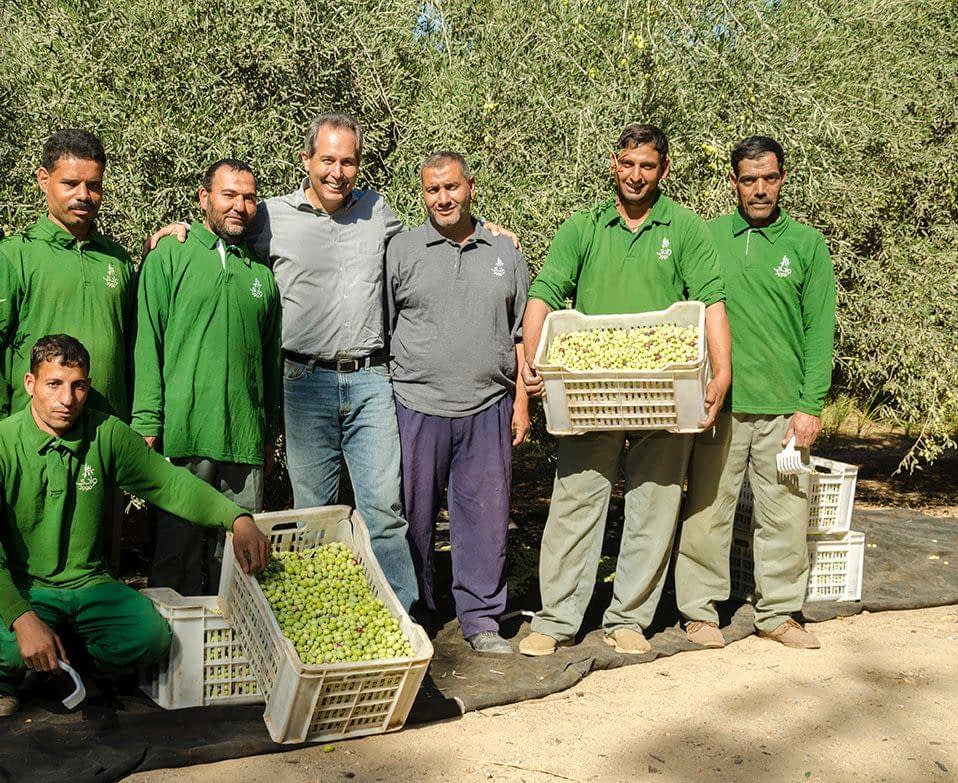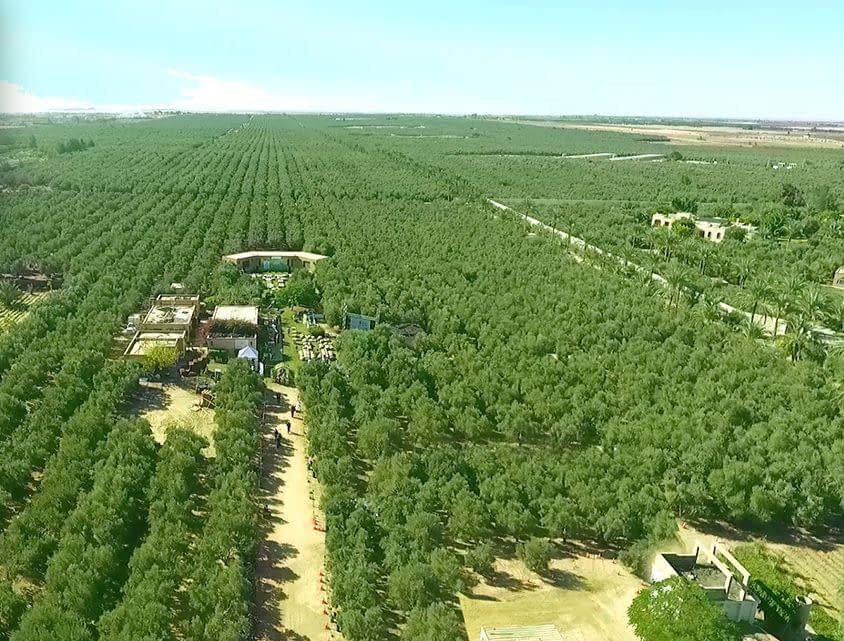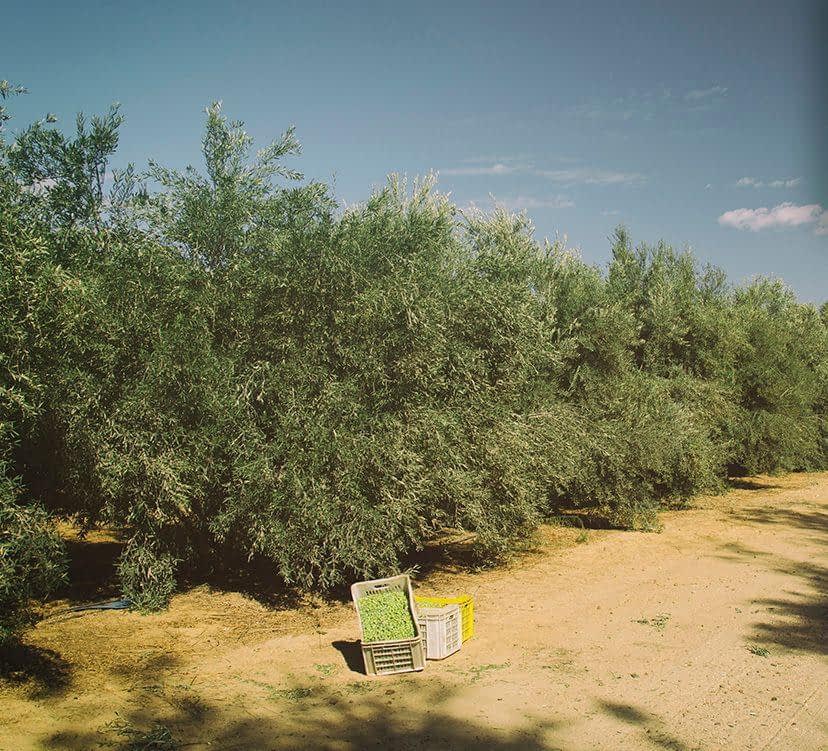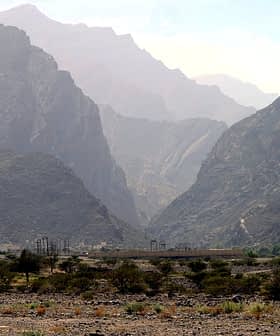Egypt Expects Lower Production After Extreme Weather Damages Groves
In many parts of Egypt, yields are expected to be between 50 and 80-percent below the average. However, producers are optimistic about the future.
 Photo: Wadi Food
Photo: Wadi Food The 2021/22 crop year will not be remembered as the most fruitful for Egyptian olive producers, as cool months followed by sudden heatwaves negatively affected the olive trees.
Local sources told Olive Oil Times of production decreases ranging from 50 to 80 percent, compared to average yields. According to International Olive Council data, Egypt produced 40,000 tons of olive oil in the 2020/21 crop year, slightly above the rolling five-year average of 38,500 tons.
Heatwaves followed by unstable cold and frosty weather disrupted the normal fruit setting conditions and hence the olive crop.
“This year, the crop was affected by several factors all related to climate,” said Kalil Nasrallah, vice-president of Wadi Food, the country’s oldest olive oil producer.
“The cold winter delayed the flowering of the trees and when they finally flowered, heatwaves followed by unstable cold and frosty weather disrupted the normal fruit setting conditions and hence the olive crop,” he told Olive Oil Times. “The phenomenon was witnessed across Egypt and the region.”
See Also:2021 Harvest UpdatesHussein Abu Saddam, head of the Farmers Syndicate, told Mada Masr magazine that they estimate yields dropping up to 50 percent throughout the country. Meanwhile, the country’s Central Laboratory for Agricultural Climate estimated a 60 to 80-percent decrease compared to the previous year.
According to Mohamed Fahim, the director of the climate change unit of the Ministry of Agriculture and Land Reclamation, the 2021 olive harvest began to unravel in March after high temperatures damaged olive tree blossoms.
He told Middle East Eye magazine that “weather conditions are becoming more severe these years. This is having a very strong effect on the agricultural sector as a whole.”
The Ministry of Agriculture and Land Reclamation recently invited farmers to work on adaptation strategies to better face the effects of climate change.
According to Mada Mars, growers were told to implement fertilization operations while the government worked with local agencies to keep farmers informed about weather and how it would affect production, also providing support to face extreme events.
The ministry also has insisted on applying best practices in farming and adopting new technologies to help mitigate the effects of bad weather.
Farmers increasingly consider climate change to be a game-changer that requires specific adaptation strategies.

Photo: Wadi Food
“Egypt is already very modern in olive farming technology as most of the olive groves are located in the desert where water is an expensive commodity and only serious farmers would venture or prevail,” Nasrallah said.
“What is forcing change is the way we acclimatize the trees to the new conditions and this is an ongoing process where we need to change some old habits in pruning techniques as well as other agricultural practices in order to adapt,” he added. “This will take a lot of time and effort and we will unlikely see a change in one season but need to patiently wait for a full adaptation cycle of three years at the very least.”
A 2014 presidential decree created an agricultural solidarity fund to sustain farmers’ losses due to pests, disease and extreme events, but it is yet to be fully implemented.
Therefore, the challenging season has affected the economy of the country. Egypt is the world’s largest table olive producer and a significant olive oil producer.
According to IOC data, Egypt produced 800,000 tons of table olives in the 2020/21 crop year, the country’s highest-ever total, and exported 120,000 tons. Only Spain exports more table olives.
While the country has steadily risen to dominate the global table olive sector, the Egyptian government aspires to do the same with olive oil. In 2019, they announced plans to plant 100 million trees specifically for olive oil production.
According to the Egyptian Council of Ministers, 53 million trees have already been planted in the last two years. International Olive Council figures show that Egyptian farmland dedicated to olive growing has expanded from 31,000 hectares in 1995 to more than 103,000 in 2018.

Photo: Wadi Food
Abdelaziz Mahmoud Abaelkhashab, a researcher at the Giza-based Horticulture Research Institute of the Agricultural Research Center, said that the ideal olive growing areas (excluding the Sinai region) run across northern Egypt from Matrooh to El-Moghra at an elevation of 18 to 80 meters above sea level.
“In the southern regions, at between 100 and 200 meters above sea level, the higher temperatures are more suited to table olives,” Abaelkhasha wrote in an IOC report.
According to the Agricultural Research Center, landowners in El-Moghra and western Menia, in Upper Egypt, have already planted hundreds of thousands of trees, using solar energy to power pumps for irrigation.
“They hope to focus on oil olive cultivars and genotypes in order to boost olive oil production,” Abaelkhashab wrote.
With only three percent of the country’s territory considered appropriate for farming, Egypt faces growing desertification in key areas. In such conditions, olive growing in the desert is increasingly seen as an opportunity.
“From our own experience, the quality of the olives in the desert is excellent whether we need it for olive oil or table olives,” Nasrallah said. “In the serene desert conditions, olive groves have been properly planned with the right varieties of olives and the ideal spacing between trees to shield wind and sand.”
“The trees have fewer diseases and pests while deep wells provide pure non-polluted water for irrigation,” he added. “The frequency of irrigation is also well monitored to suit the demand of the trees and to keep the crop healthy.”

Photo: Wadi Food
“Due to the fact that larger size companies are planting the desert, they often also have means to press the olives at their own or shared oil mills within hours of harvesting, which minimizes handling and spoilage,” Nasrallah continued. “This all results in very high-quality extra virgin olive oils.”
The country’s interest in olive oil production is not only due to the growing export opportunities but also to a new olive oil culture slowly making inroads among the Egyptian households.
“Egypt used to be the only Mediterranean country that did not have olive oil-based cuisine,” Nasrallah said. “While olives were readily used in Egyptian meals, olive oil was a scarce and expensive commodity that only wealthy consumers could afford.”
“Over the past 15 years or so, Egyptian consumers became aware of the health benefits of the olive oil, specifically extra virgin olive oil, and demand started to increase,” he added.
Backing up his claims, IOC data indicate that olive oil consumption in Egypt rose from 5,000 tons in the 2010/11 crop year to 41,000 tons in 2020/21.
Nasrallah attributed a rise in olive oil culture to an increase in modern shopping outlets, Mediterranean restaurants that offer Middle Eastern, Italian and Greek cuisine and a rise in the popularity of cooking shows that often showcase extra virgin olive oil as one of the ingredients.
The Covid-19 pandemic has also played a role in Egypt’s growing appetite for olive oil. Emergency measures forced many more Egyptians to eat at home and focus on the healthy qualities of their food.
“There are many trends that could be observed since the beginning of the pandemic,” Nasrallah said. “The most important in our case is the growth of homemade meals and the demand for healthy foods.”
“When you cook for yourself, you tend to buy the best ingredients and follow recipes that are very often rich in olive oil,” he concluded.








